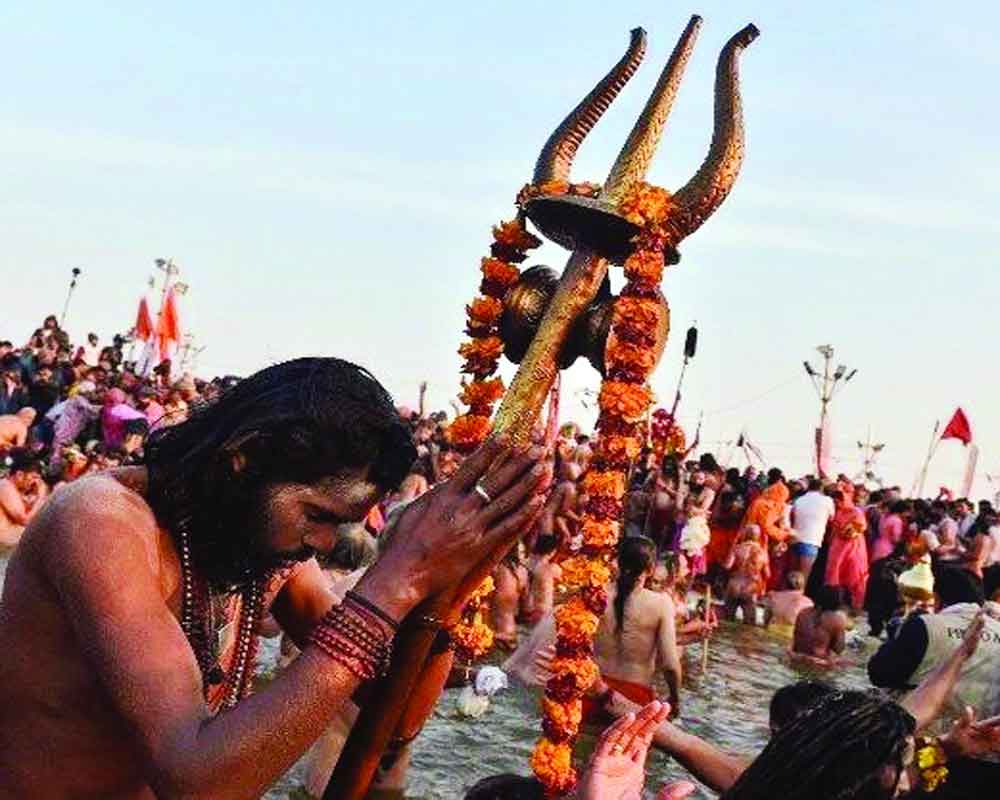Customer delight’ in marketing jargon explains the feelings of the customer who gets more than what he expects from his buy. This, precisely, was my experience on getting down at Allahabad, nay Prayagraj, railway station in the early hours of a morning recently to be a part of the mega event Kumbh. The light and life in those hours was a pleasant surprise in that sleepy old city. It is not just the name, but the DNA of the city has also changed. The Kumbh experience may be ecstatic but the changed city feel was more concrete. The development, orderliness, and cleanliness — all suggesting that Godliness can also be a cause for development. Thanks to Kumbh, religion is not just the opium of the people, the soul of the soulless conditions. It also leads to development, if used purposefully, with both the ordinary and elite, the Nagas and the Rajas rubbing shoulders. Kumbh has been a spectacle that served not just the needs of the faithful but also fulfilled the requirements of the state. A wonderful confluence of religion and economics, the Kumbh has proved how faith can be used to work wonders for developmental purposes. A development that was alien to the city was there on the ground in bricks and mortar. That Kumbh has been a global event for quite some time is known, but the kind of gentry that the mela attracted this time, it seemed as if all roads led to Allahabad. Not necessarily for those drops of nectar that a holy dip in the Sangam would make one taste, but certainly for the novel experience that one was expected to get. That is what marketing does. It creates a need for the kind of feeling one expects to get from some product, service or experience. Kumbh did exactly that. All kinds of people, those driven by religious faith and those attracted by the grandeur, the aura that was so beautifully created by the media, flocked at the Sangam just to get that feel; salvation not being the only goal. It was religious tourism of the highest order as the mela, that has concluded, witnessed around 20 crore people take the holy dip. The hoi polloi, the elite, the political masters, and the delegates from around 200 countries, all keen to get that experience. India, then, is not just the country of snake charmers and sanyasis. It is also the country of wonderful experiences, the real and the surreal, the ritual and the spiritual. A mela that could attract such a large sea of humanity in a span of only 48 days can well be termed as the world’s greatest event, which no marketer can think of packaging and selling. But it is not just about religion, nor only about faith, though these were the key drivers. Kumbh is also about economics and development. The State Government invested, organised, marketed and sold Kumbh, getting handsome returns in the process. How it became such a brand may well intrigue the best of the marketing brains. But one golden rule that explains this is — you can only sell that which people believe in. Marketing is then not just the tricks the marketers think they play to allure customers. Marketing is when you are able offer something that matches with the belief system of the customers. Gimmicks and mimics notwithstanding, marketing is about understanding real customer needs and providing the offers that would satisfy those needs.
Pathak is a professor of management, writer, and an acclaimed public speaker. He can be reached at ppathak.ism@gmail.com


























